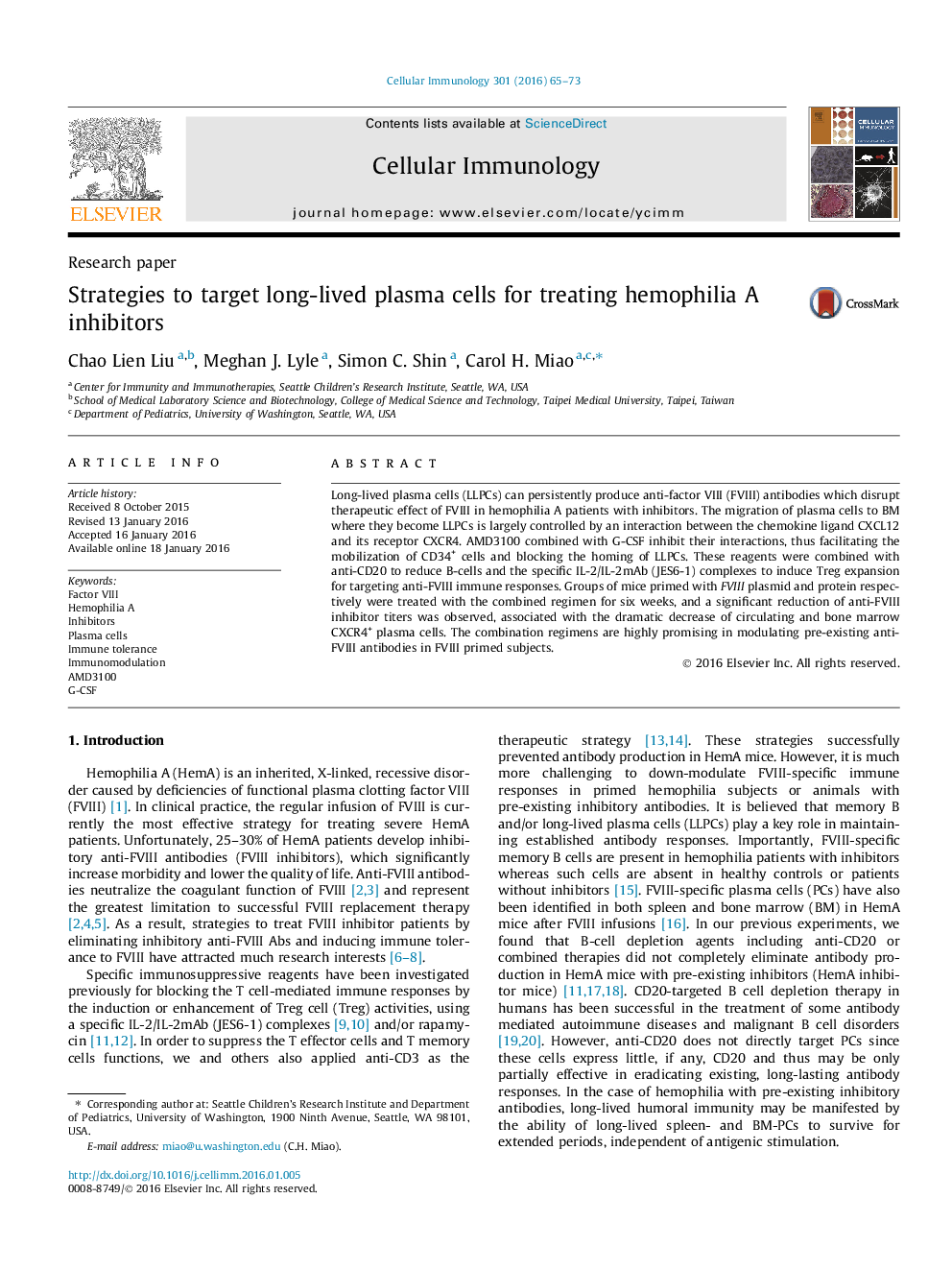| Article ID | Journal | Published Year | Pages | File Type |
|---|---|---|---|---|
| 8463731 | Cellular Immunology | 2016 | 9 Pages |
Abstract
Long-lived plasma cells (LLPCs) can persistently produce anti-factor VIII (FVIII) antibodies which disrupt therapeutic effect of FVIII in hemophilia A patients with inhibitors. The migration of plasma cells to BM where they become LLPCs is largely controlled by an interaction between the chemokine ligand CXCL12 and its receptor CXCR4. AMD3100 combined with G-CSF inhibit their interactions, thus facilitating the mobilization of CD34+ cells and blocking the homing of LLPCs. These reagents were combined with anti-CD20 to reduce B-cells and the specific IL-2/IL-2mAb (JES6-1) complexes to induce Treg expansion for targeting anti-FVIII immune responses. Groups of mice primed with FVIII plasmid and protein respectively were treated with the combined regimen for six weeks, and a significant reduction of anti-FVIII inhibitor titers was observed, associated with the dramatic decrease of circulating and bone marrow CXCR4+ plasma cells. The combination regimens are highly promising in modulating pre-existing anti-FVIII antibodies in FVIII primed subjects.
Related Topics
Life Sciences
Biochemistry, Genetics and Molecular Biology
Cell Biology
Authors
Chao Lien Liu, Meghan J. Lyle, Simon C. Shin, Carol H. Miao,
